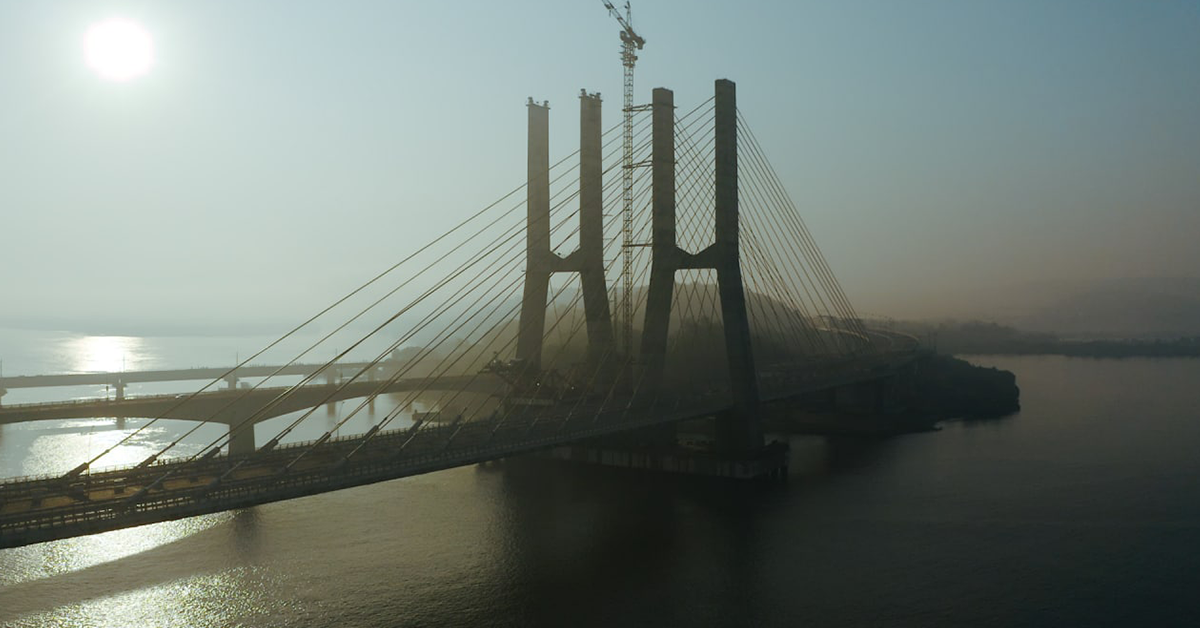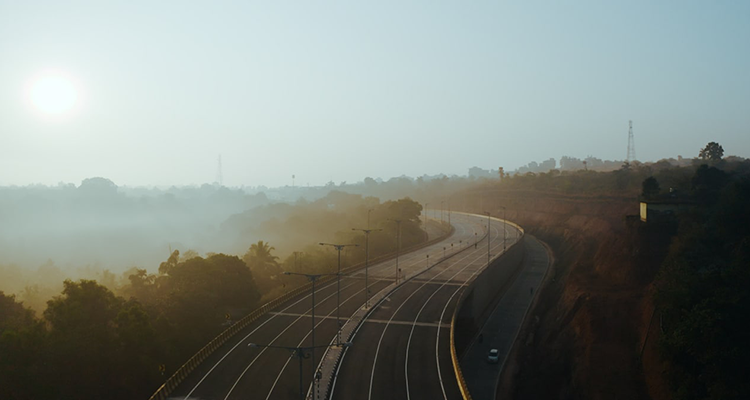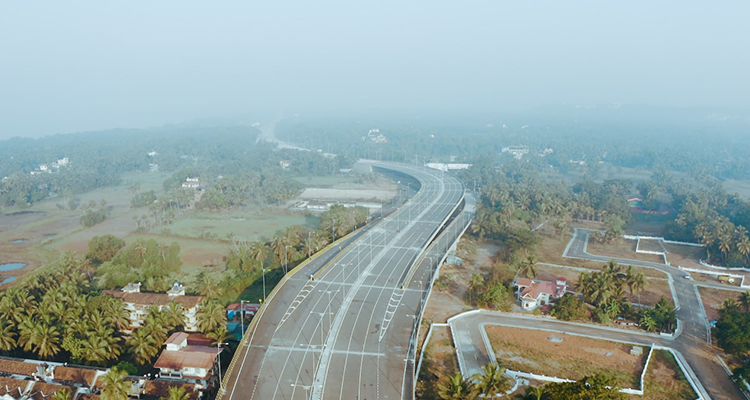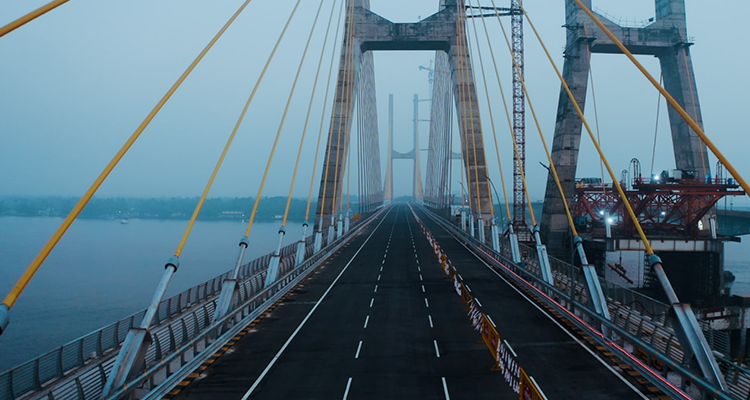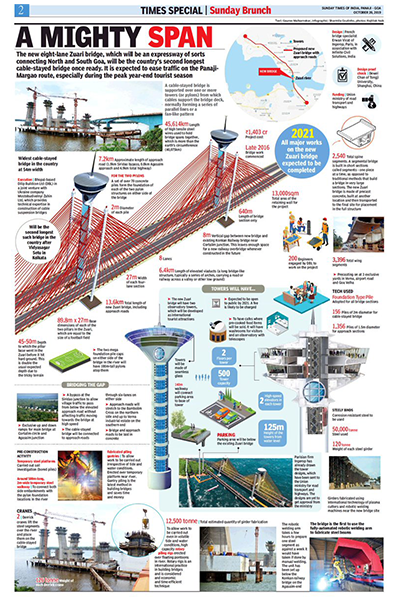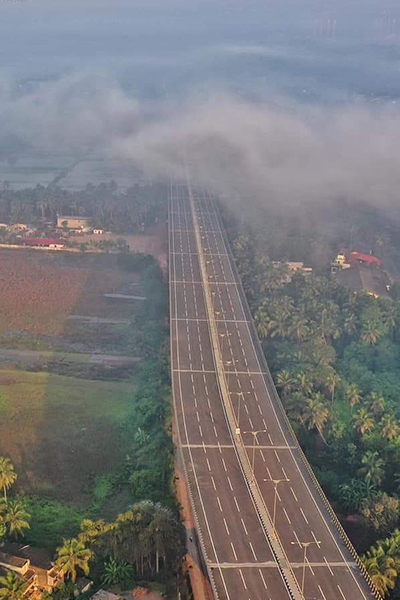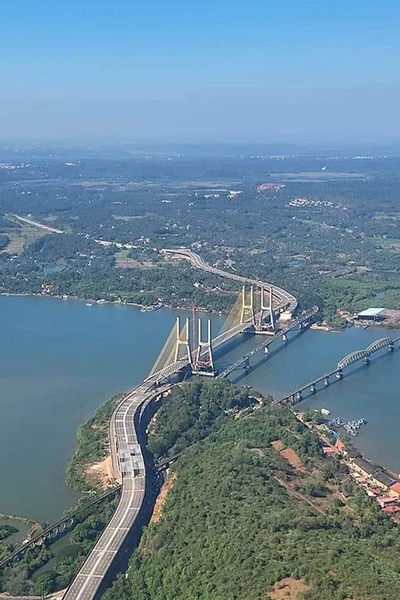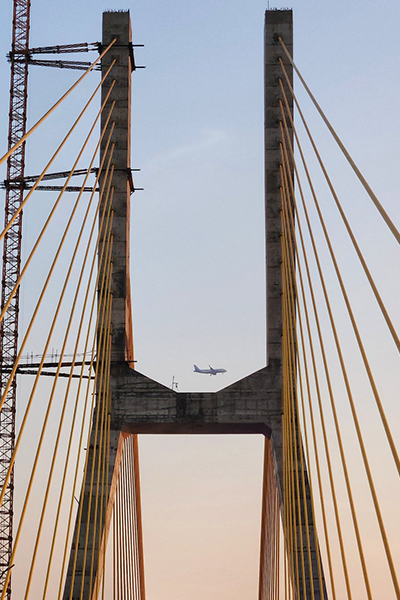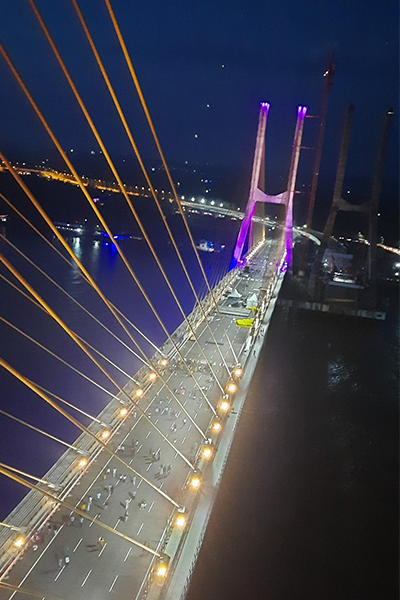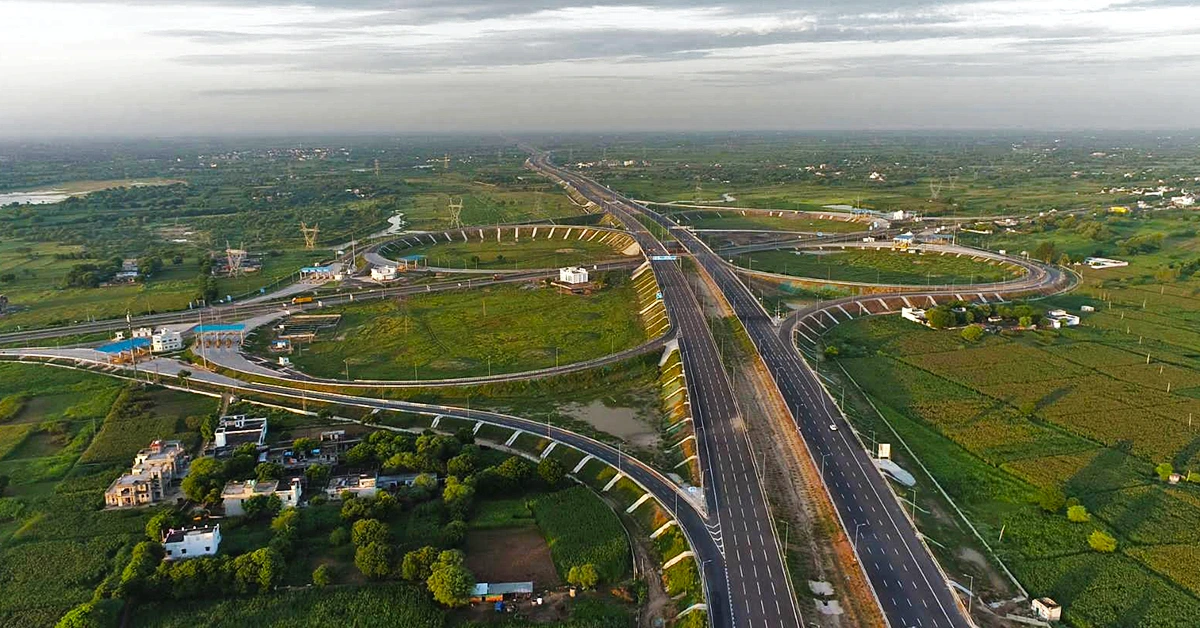In a historic moment for India, Prime Minister Narendra Modi flagged off MV Ganga Vilas, the world's longest river cruise which makes a journey through India and Bangladesh, showcasing the rich heritage and culture of both countries.
The New Zuari Bridge
India’s widest and second largest cable-stayed bridge in India, the Zuari bridge in Goa will enhance the economic activity of the state.
Read Time: 5 minutes
click play to listen to the article
The first phase of another one of India’s ‘Architectural Marvel’, Goa’s Zuari Bridge was inaugurated by Union Minister for Road Transport and Highways, Nitin Gadkari, on 29 December 2022. The second largest cable-stayed bridge in India — behind Mumbai’s Bandra-Worli sea link — is an important link between North and South Goa. To be the country’s widest bridge (54m) once fully completed, Zuari bridge is located on the Zuari river at Cortalim village on Margao-Panaji National Highway, about 15km from the state capital. The new bridge is part of a Rs 2,530 crore project covering a distance of 13.635kms between Bambolim (North Goa) and Verna (South Goa) villages.
Being built by Dilip Buildcon Limited, the entire eight-lane project will be completed by April 2023. The entire project involves consultants from France, China, the Central Public Works Department and the state Public Works Department (PWD). The project started in January 2016, and actual work was started in 2017. Dilip Buildcon will have to maintain it for eight years from its completion before handing it over to the Union government.
Zuari bridge comprises of 3 sections — a 8.2km highway from GMC Bambolim to Goa Velha, a new 1.08km Zuari Bridge (Cortalim – Tiswadi) and a 3.6km highway to Verna. Approximately 6.4km of these highways will be elevated.
The main bridge over the Zuari river is 640m long. It has dual carriageways of 27m each and has a center median of 10.7m. It has a central span of 360m and end-spans of 140m on either side. The uniqueness of the project is that the dual carriageways are combined on a single foundation which is 89.6m x 27m x 4m (depth) — which is equal to the size of a football field.
About 22,000 tons of steel and around 224 cables weighing about 1500 tons of Korean cables have been used in the bridge. 45,614kms length — which is more than the earth circumference (40,075km) — of high tensile steel is used to hold bridge spars. The bridge can withstand a load of 1,000tons, making it one of the safest structures. Its deck comprises of a composite structure of steel and concrete. The bridge has been designed for vehicles to travel at 100kmph. Very heavy-duty steel crash barriers form the first layer followed by another two railings. Zuari bridge is expected to be a pothole free bridge as the road is made up of polymer modified bitumen which does not allow water to percolate.
1,600 workers were working on a daily basis on this project during the peak of its construction. To maintain the pace of construction, many workers were flown back to construction site using chartered planes as other modes of transport were restricted due to Covid regulations.
The bridge passes through an important waterway route for Mormugao Port Trust, located in Vasco town of South Goa. To allow passage of large cargo ships the Zuari bridge is built 14m high above high tide level for navigation purpose.
An added attraction of the Zuari bridge would be the two tourist view towers which have been planned for construction in the future. The towers would be at a height of approximately 125m. They will have an observatory, a viewing gallery, a revolving restaurant and an art gallery. The construction cost of the towers is expected to be around Rs 130 crore. The towers will have access from a walkway built at the base of the bridge.
The Zuari bridge reduced travel distance for heavy carriage vehicles by 40kms. It will strengthen the connectivity to Mormugo Port Trust. The bridge will provide better access to large markets for agriculture produce from South Goa. The unlocking of tourism and business activity due to effective movement of commercial and private traffic will enhance the economic activity of Goa.
Tags: The New India, Infrastructure
Share this article:
Leave a Comment
Recommended For You
The Bogibeel bridge over the Brahmaputra will boost defence logistics along the China border and increase the economic activity of the long-time neglected Northeast region.
India’s longest expressway — the Delhi Mumbai Expressway is India’s quantum leap into the future, displaying Narendra Modi's resolve towards building a New India. Modi government’s emphasis on building an excellent road infrastructure as an engine of growth, development and connectivity in the New India shall bring opportunities, growth and →Read More →
India's first semi-high speed train, the Vande Bharat Express, was launched by Prime Minister Modi on 15 February 2019. The train offers Indian travelers a myriad of superior amenities and provides passengers with aircraft like travelling experience.
Fast-tracked by Narendra Modi, besides supporting the Armed Forces, the Atal Tunnel is destined to play a defining role in the future development of the region.
The Bengaluru-Mysore Expressway is a testament of Modi government's commitment to improving transportation infrastructure in the country. Improved connectivity between Bengaluru and Mysore is likely to lead to increased business opportunities and tourism in the area.
Atal Setu or the Mandovi River Bridge, a dream project of Goa Chief Minister Manohar Parrikar is expected to decongest Panaji traffic and serve as a bypass for those who want to travel from north to south without entering Panaji.

